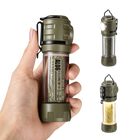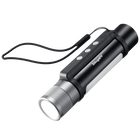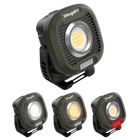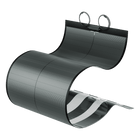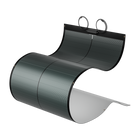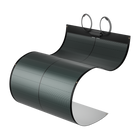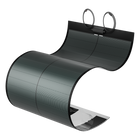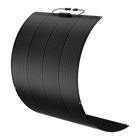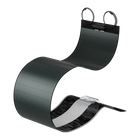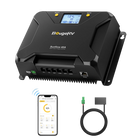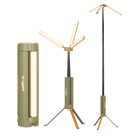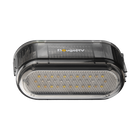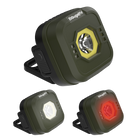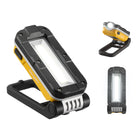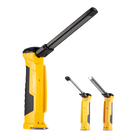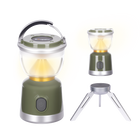CIGS Solar Panels for Your RV: A Beginner’s Guide


If you’re searching for guidance on selecting the best solar panels to energize all equipment in your recreational vehicle that suits your lifestyle, wallet, or Instagram — then you’re in the right spot if you’ve landed here!
We all know that there are various solar panels in terms of shape, size, capacity, and technology, but once you've decided to get one for your RV or rig, you'll have to navigate right and wrong turns along the way.
When you go shopping for solar panels, you'll notice a variety of dimensions, amenities, and terminology that you may not be familiar with. Don't let overwhelm you with seemingly intimidating technicalities that may cause you to make rash purchases.
Whether you are a beginner or a pro, a little research before going to the supplier is a good idea. So, we've done the legwork to get you started on the right foot. This article will assist you in making the best solar panel purchase decision:
- Why Flexible Cigs Solar Panels Are Best For Your Rv?
- Why Cigs Solar Panels Are The Best Fit For Your Rv?
- How To Install Flexible Cigs Solar Panels On Your Rv?
- Summary
Why Flexible Cigs Solar Panels Are Best For Your Rv?
Before choosing to buy solar panels for your RV or towable rig, you should have a general idea about the types of solar panels. Stay with us and you'll be ready to jump into the next debate about the pros and cons of various types of solar panels on the market.
There are two broad categories of solar panels in the market – 1) Crystalline silicon-based solar panels and 2) Thin film bases solar panels.
|
CIGS |
Crystalline Silicone Cells |
|
Flexible
|
Rigid
|
|
Durable
|
Breakable
|
|
Lightweight
|
Rigid
|
|
Bonded directly to the surface
|
Requires mounting hardware
|
|
Aesthetically pleasing
|
Clunky-looking
|
Why Cigs Solar Panels Are The Best Fit For Your Rv?
Flexible CIGS solar panels have several distinct characteristics that make them the best suitable panel for an RV or rig.
1. Flexible solar panel
The production method of flexible CIGS solar panels is completely different from the regular crystalline silicon solar panels. The substrate at the bottom of the CIGS panel is the backbone or base of this solar cell. The substrate for flexible CIGS solar cells is a polymer called polyimide that makes the solar panels 360 degrees flexible. The rest of the materials are placed on it, defining other properties of the cell.

The flexibility of the CIGS panels makes them unique and versatile that make them suitable to fix on any curved or odd surface of an RV or caravan. The deployment is very easy, making it safe from wind thrust while driving, and can withstand the shock of vibration on road.

2. Portable Application
Because CIGS solar panels are lightweight and flexible, they can be used for portable applications. They can provide power to charge electronics and other appliances such as portable refrigerators, air conditioners, or ice makers while traveling, camping, or doing other similar activities. With the CIGS solar panel electricity backup, you can be confident that you will be able to enjoy your favorite beverage or find comfort in the wilderness.
3. Durable and robust
Unlike crystalline silicon solar panels, CIGS solar panels do not have a top layer of glass. As a result, there is no risk of glass breakage or shattering. The crystalline silicon cell is also extremely brittle. Microcracks will form if any weight or pressure is applied to the crystalline silicon cells. However, CIGS solar panels are built differently, and there is no risk of breakage or microcracks, so there is no risk of losing electricity from the panels. This is a huge relief for RV owners who are on the road.
4. Lightweight
As the CIGS solar panel production method is different, they are very thin and there are fewer materials used to construct the panel. CIGS solar panels are 6 to 7 times lighter than crystalline silicon solar cells. For an RV owner, any weight gain on the vehicle is taxing in terms of gas. To give an example of how light a CIGS panel is, we can compare a 200W BougeRV panel with a crystalline silicon solar panel. A 200Wp CIGS panel weighs only 3 kg but a Polycrystalline silicon solar panel of 200Wp size will weigh 19 kg.
5. CIGS panels generate more electricity
One significant difference between solar panel technologies is efficiency and how it is affected by temperature. BougeRV's CIGS solar panel is 16% efficient, and its temperature coefficient is lower than that of crystalline solar panels. The higher the temperature coefficient, the greater the voltage loss from the panel due to higher temperature.
Another advantage of CIGS solar panels is that they can trap more light from the sunlight's wavelength spectrum and can operate in low-light conditions. CIGS solar panels can trap light in the early morning hours and late afternoon hours when light from the sun is less and the earth receives light that is longer wavelengths. This provides more operating hours for the CIGS solar panels to generate more electricity. A 200W CIGS solar panel from BougeRV generates 10-15% more electricity in a year.
How To Install Flexible Cigs Solar Panels On Your Rv?
Unlike silicon crystalline solar panels, CIGS solar panels are lightweight and have no glass or metal frame. As a result, these panels do not require racking systems to be installed on the roof of the RV or rig. These metal racking systems are heavy, adding weight and cost to solar systems, and choosing these racking systems is also difficult.
Flexible solar panels, on the other hand, are very simple to install on any type of surface curved body. It takes the form of the roof of the RV.
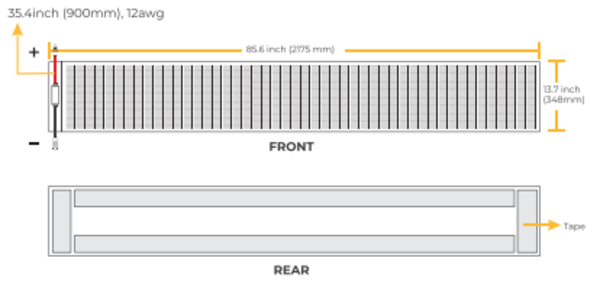
Solar panel installation is as simple as two steps. Peel the protection tape first, and then attach the panel to the roof or any other surface as shown below. The panel is then connected to the battery controller, and the solar panel is ready to use.

One of the advantages of CIGS solar panel for RV is, it does not damage the roof or body of the RV as it is very lightweight.
Summary
Whether you are a family camper, adventure seeker, casual camper, or a nomad with an RV, your need to charge electronics, lights, fans, refrigerators, and air conditioners is always there. A lightweight, easy-to-carry, flexible CIGS solar panel is the trusted companion for an RV owner.
The flexible CIGS panels easily fit on the RV roof. They do not appear awkward, and there is no risk of panel breakage during transportation, installation, or operation. Because they do not require a racking system and have lower installation and labor costs, CIGS panels reduce project costs. And the BougeRV 100W or 200W flexible CIGS panels generate 10-15% more energy at the end of the year. As a result, you will be able to recover your funds more quickly.
Professionals from BougeRV have extensive experience in designing and installing flexible CIGS solar panels on RVs, Caravans, or rigs. If you are accessing to retrofit RV with equipment and powering them, click here and leave your details. BougeRV will respond to know your specific requirements and assure you give you the best solution. The service from BougeRV is completely free and non-binding.








